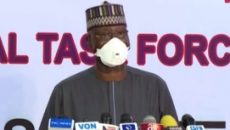 The convention of examining a new government after 100 days in office seems not only disturbing but also misleading. While many, if not all, politicians aspiring for office promise goodies to the people within 100 days, if elected, one should not lift the issue to undue prominence. Governance is a continuous process; hence it is expected that a new administration should reflect continuity. Some Nigerians from all walks of life have made commentaries on the performance of President Muhammadu Buhari’s 100 days in office. What really can be achieved within 100 days? Did he and/or his party promise to change Nigeria within 100 days? Why so much emphasis on 100 days? Can any substantial issue be addressed permanently within 100 days? This is not to suggest that the President cannot be evaluated on the basis of how cogent matters of national and global interests are addressed on a daily basis. This should be a continuous process, 100 days or not.
The convention of examining a new government after 100 days in office seems not only disturbing but also misleading. While many, if not all, politicians aspiring for office promise goodies to the people within 100 days, if elected, one should not lift the issue to undue prominence. Governance is a continuous process; hence it is expected that a new administration should reflect continuity. Some Nigerians from all walks of life have made commentaries on the performance of President Muhammadu Buhari’s 100 days in office. What really can be achieved within 100 days? Did he and/or his party promise to change Nigeria within 100 days? Why so much emphasis on 100 days? Can any substantial issue be addressed permanently within 100 days? This is not to suggest that the President cannot be evaluated on the basis of how cogent matters of national and global interests are addressed on a daily basis. This should be a continuous process, 100 days or not.
Click here to download full copy
At the sub-national or state level, some of the achievements listed within the last 100 days make mockery of the entire exercise. Commissioning of street lights, visits by potential investors, payment of salaries owed to workers, renovation of schools, providing pavements for roads/streets, holding of summits, seminars and conferences, trips abroad, etc, are enumerated as achievements within 100 days! One is forced to ask: without a new administration, wouldn’t the relevant government agency pave roads and renovate schools? It is ridiculous and this obsession of examining performance within 100 days must stop. Why is the period so sacrosanct? It has become so fashionable in the country’s political equation that state and local governments have to shop for items of achievement for their 100 days in office!
One is not saying, though, that a new government should not be held accountable or benchmarked with its campaign promises. This must be the case but a reasonable period of time must be allowed before evaluating performance. At the federal level, what should President Buhari list as achievements within this short milestone? The ‘old’ administration was in power for 16 years and would have wished to continue but was shoved aside at the polls. Consequently, the ‘new’ administration won on the platform of change. Change has to be defined in a particular context. Is it structural change? Is it change in the economic system, or what? If the change of the Buhari administration implies a break with continuity, that is, from what the previous administration was doing, then 100 days is too short a period for evaluating the process. Even if the change were cosmetic, 100 days may still not be enough.
However, during the campaign and struggle for political power by the contending social forces, the President, then a candidate, promised to address the issues of security, electricity, employment, education, corruption, among others. Thus, a better approach would be to ascertain whether he has set in motion the process (es) to address these issues. What has been the momentum? Are the perceived strategies to address these issues appropriate? If not, then stakeholders should contribute their quota to enrich the strategies enunciated by the President.
Follow Us on Social Media


 WhatsApp us
WhatsApp us